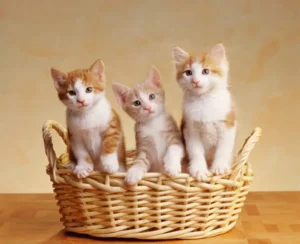Cats are often seen as aloof, independent, or emotionally distant animals. However, animal behaviorists argue that cats do feel affection. They just express it differently. One theory in feline psychology suggests that cats do not recognize humans as a different species. Instead, they perceive us as oversized, clumsy cats.
Unlike dogs, which evolved to understand human hierarchy and social cues, cats developed independently before forming relationships with humans. Their domestication occurred through mutual convenience: humans attracted rodents, and cats provided pest control. Because cats were never selectively bred to interpret human behavior the way dogs were, they rely on instinctive social behaviors.
When a cat rubs against your legs, it performs the same scent-marking ritual it uses on fellow cats. When it kneads your lap, it reenacts kittenhood instincts used to stimulate milk flow. Gift-giving behavior, such as dropping dead birds at your door, is a teaching method cats use on younger cats learning to hunt. This implies they see you as incompetent rather than inferior.
Cats also meow primarily for humans, not other cats. Felines communicate with each other through body language and scent, but domestic cats developed vocal communication as a way to manipulate humans. Meowing mimics infant cries, triggering nurturing responses. In short, cats evolved to speak human, but not necessarily to see humans as human.
If cats see us as larger cats, it also explains their confusion when humans fail to follow feline social norms. For example, cats interpret eye contact as a threat. This is why slow blinking signals trust. A cat may think you are rude or unpredictable if you stare too long. Hugging may feel like dominance or restraint rather than affection.
Understanding feline perception helps humans bond better with their pets. Instead of expecting human-style affection, owners can communicate in feline-friendly ways: slow blinking, offering personal space, maintaining consistent routines, and avoiding forced physical interactions.
Cats are not cold. They simply love in their own language. To them, we are fellow cats, just much bigger and far less graceful.






